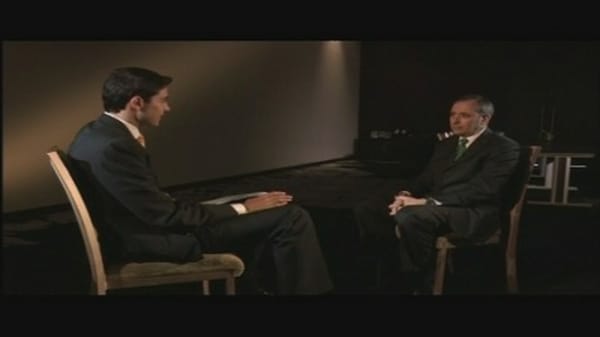If at first you don't succeed, try, try again. After failing to make the jump in the five previous reviews spanning half a decade, global index compiler MSCI has finally upgraded the United Arab Emirates (UAE) and Qatar to Emerging Market (EM) status from Frontier Market (FM), marking a new era for their capital flows and facilitating more access to funds from around the globe.
"It's not just the amount of the flow that is expected to come here, it's the quality of the flow. You will have more of the long-term, educated investors rather than the hedge funds," Madhi Mattar, CEO at Abu Dhabi-based Finance House Capital, told CNBC.
Effective May 2014, the UAE and Qatar will be given a weighting of 0.4 percent and 0.45 percent respectively in the MSCI Emerging Markets Index.
(Read More: MSCI Lowers Greece to Emerging Market Status)
Stocks in the region rose after the news with Dubai's DFM closing up 1.6 percent, Abu Dhabi's ADX rising 2.67 percent and Qatar's QE finishing up 1.75 percent.
In the case of Qatar, MSCI welcomed the commitment to increasing foreign ownership limits and the settlement of trades. But MSCI also pointed out that foreign ownership was still "well below the limit", recommending authorities "actively continue to increase them above 25 percent in order to mitigate potential issues arising from increasing foreign capital flows."
For the UAE, the MSCI statement similarly acknowledged the improvement in settlement of trades across the country's three indices, and said the "majority of market participants have expressed no major concerns over the safekeeping of investors' assets."
Local markets have already been on a tear so far this year, with Dubai's DFM up in excess of 47 percent (among the best performing indices in the world), the ADX in Abu Dhabi has risen 39 percent, but Qatar's QE has trailed with gains of 13 percent.
(Read More: Wild Swings? Emerging Currencies Have It the Worst)
Investors and analysts have told CNBC that the upgrade will have a significant impact on market depth and liquidity as more capital from mutual funds and exchange traded funds (ETFs) trickle in.
"As liquidity increases, we will see, end of this year and next year, more and more listings," Mattar added.
Estimates of capital inflows have varied greatly between the various research houses. Late last month, HSBC estimated an upgrade would translate into $430 million in additional fund flows for Qatar and $370 million for the UAE. Two years ago, at a time when global economic jitters were substantially higher, Credit Suisse placed the figure at $1.74 billion for both.
But more integration with global capital flows also comes with its drawbacks.




